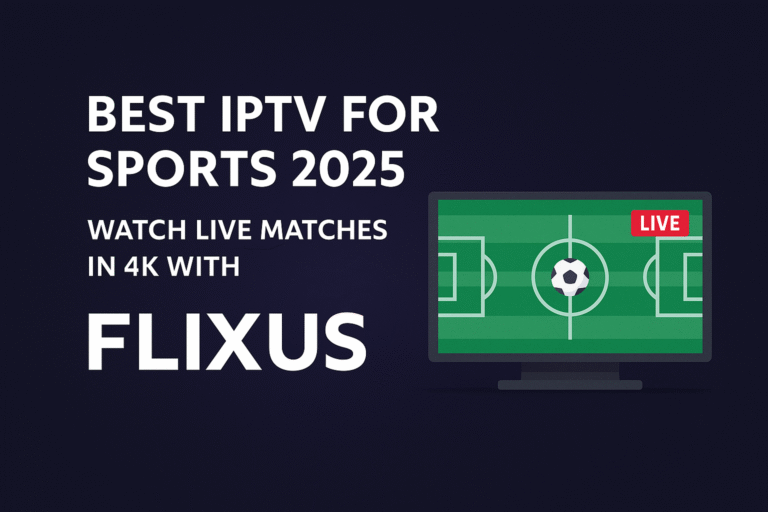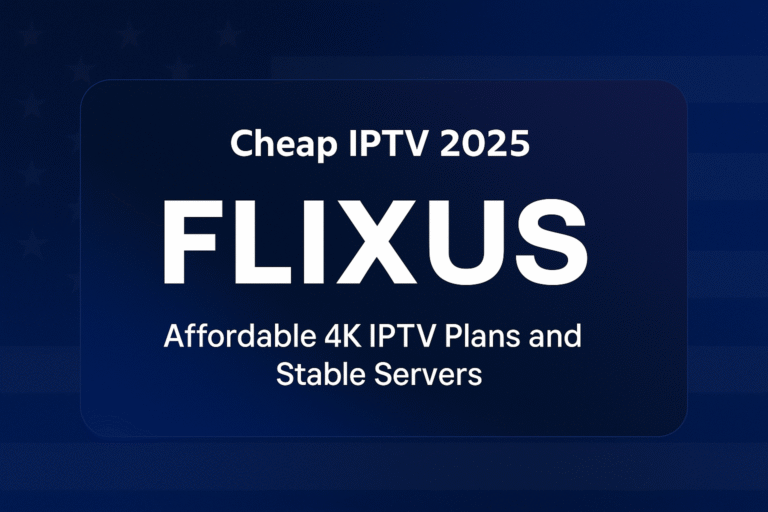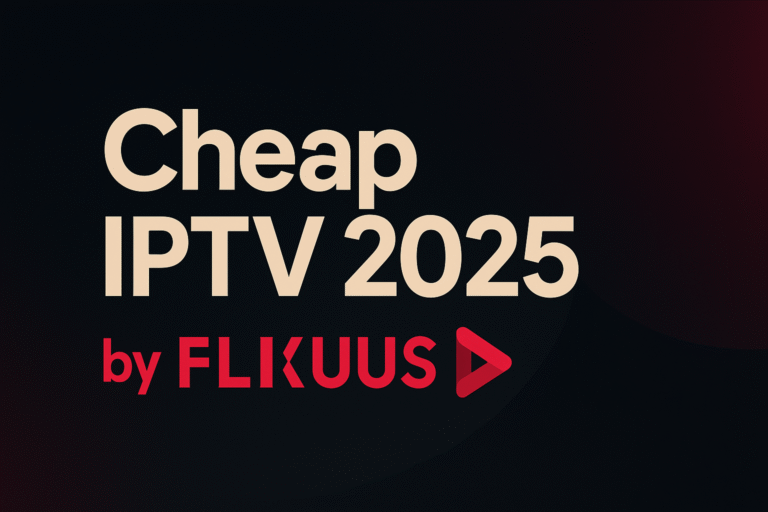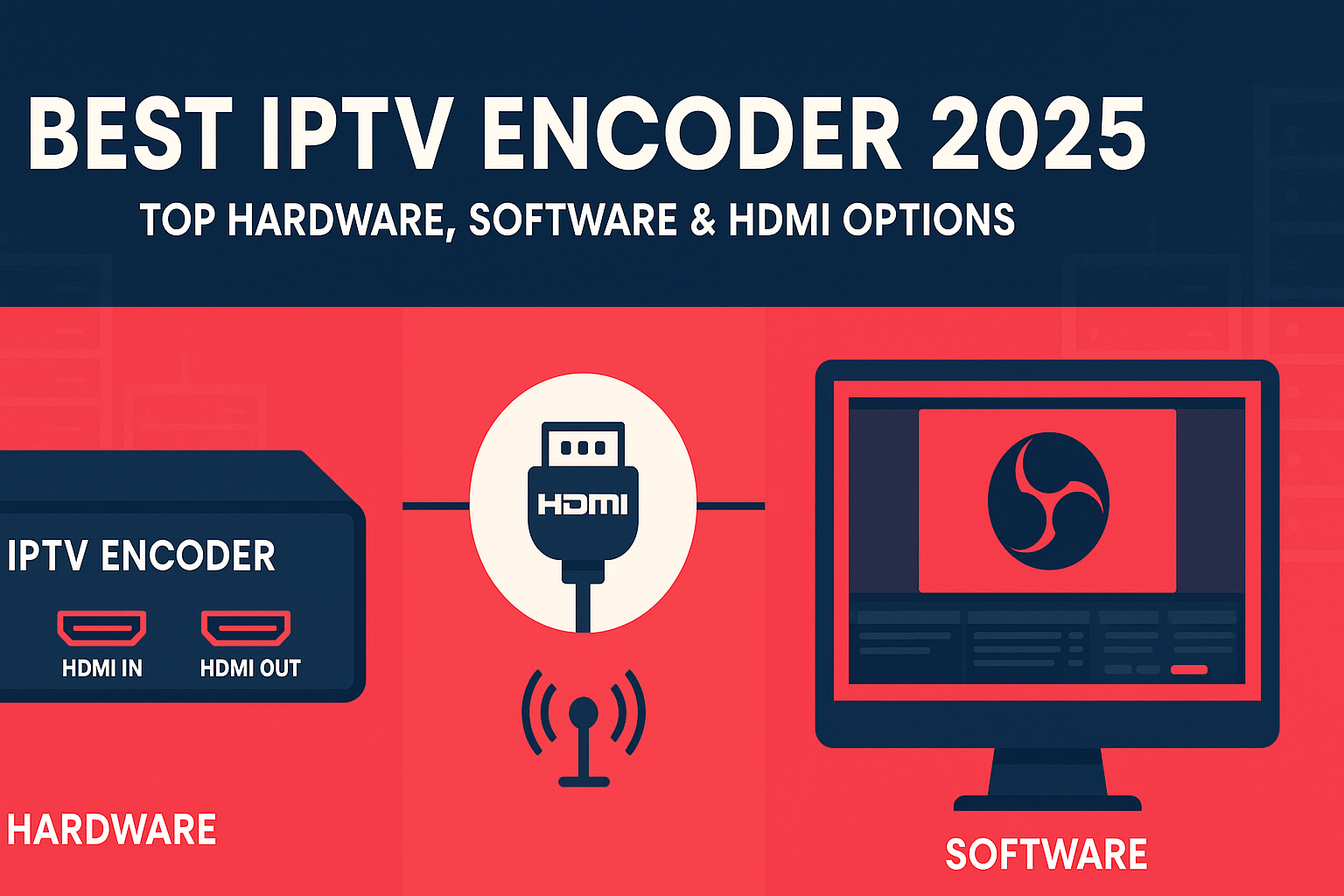
The best IPTV encoder 2025 can make or break your streaming quality. Whether you’re setting up IPTV for personal use, a reseller service, or professional broadcasting, choosing the right encoder ensures smooth, buffer-free viewing. In this guide, we compare hardware vs software IPTV encoders, explain HDMI modulators, review pricing options, and show how to select the best encoder for your IPTV business.
What is an IPTV Encoder?
An IPTV encoder is the device or software that converts video/audio signals into a digital format suitable for IPTV streaming. It compresses live TV signals and prepares them for distribution over the internet. Without a proper encoder, viewers may experience lag, poor video quality, or total stream failure.
For more technical background, see IPTV on Wikipedia.
Hardware vs Software IPTV Encoders
There are two main types of IPTV encoders in 2025:
- Hardware Encoders: Dedicated devices built for encoding. They’re fast, reliable, and ideal for 24/7 IPTV streaming. Recommended for resellers and broadcasters.
- Software Encoders: Apps like OBS Studio or Wirecast that run on your PC/Mac. They’re cheaper and flexible but require a strong CPU/GPU.
Tip: Use OBS Studio if you’re testing or running a small IPTV setup.
HDMI IPTV Modulator Explained
An HDMI IPTV modulator lets you take HDMI input (like from a TV box or camera) and convert it into IPTV streams. This is especially useful for hotels, sports bars, and resellers who want to re-stream HDMI sources into IPTV-compatible formats.
Best IPTV Encoder Under $500 / $1000 (2025)
If you’re on a budget, here are the top recommendations:
- 💻 Under $500: Entry-level HDMI IPTV encoders (1080p) for small projects.
- 💻 Under $1000: Mid-range hardware encoders with 4K support and better reliability.
- 💻 Over $2000: Professional-grade encoders designed for 24/7 IPTV businesses.
Always balance cost with long-term reliability. A $500 encoder may work for hobbyists, but IPTV resellers should invest in higher-grade hardware.
How to Choose the Best IPTV Encoder in 2025
- ✅ Decide between hardware (reliability) and software (flexibility).
- ✅ Check video quality: at least Full HD, ideally 4K.
- ✅ Ensure it supports your IPTV player format (M3U, Xtream Codes).
- ✅ Look for cooling and durability (important for 24/7 usage).
- ✅ Compare warranties and brand reputation.
Alternatives for Resellers
If your main goal isn’t encoding but running an IPTV business, you may not need to buy an encoder at all. Instead, consider joining a FLIXUS IPTV Reseller Program where the encoding infrastructure is already in place. This allows you to focus on customer management, sales, and support without the upfront cost of hardware.
FAQ – Best IPTV Encoder 2025
What is the best IPTV encoder for beginners?
For beginners, a software encoder like OBS Studio is the best choice. It’s free, flexible, and perfect for testing IPTV streams in 2025.
Which is better: hardware or software IPTV encoder?
Hardware encoders are more reliable and stable for 24/7 use. Software encoders are cheaper and better for testing or small setups.
Do I need an HDMI IPTV modulator?
If you plan to stream HDMI sources (like TV boxes or cameras) into IPTV, then yes, a modulator is essential.
